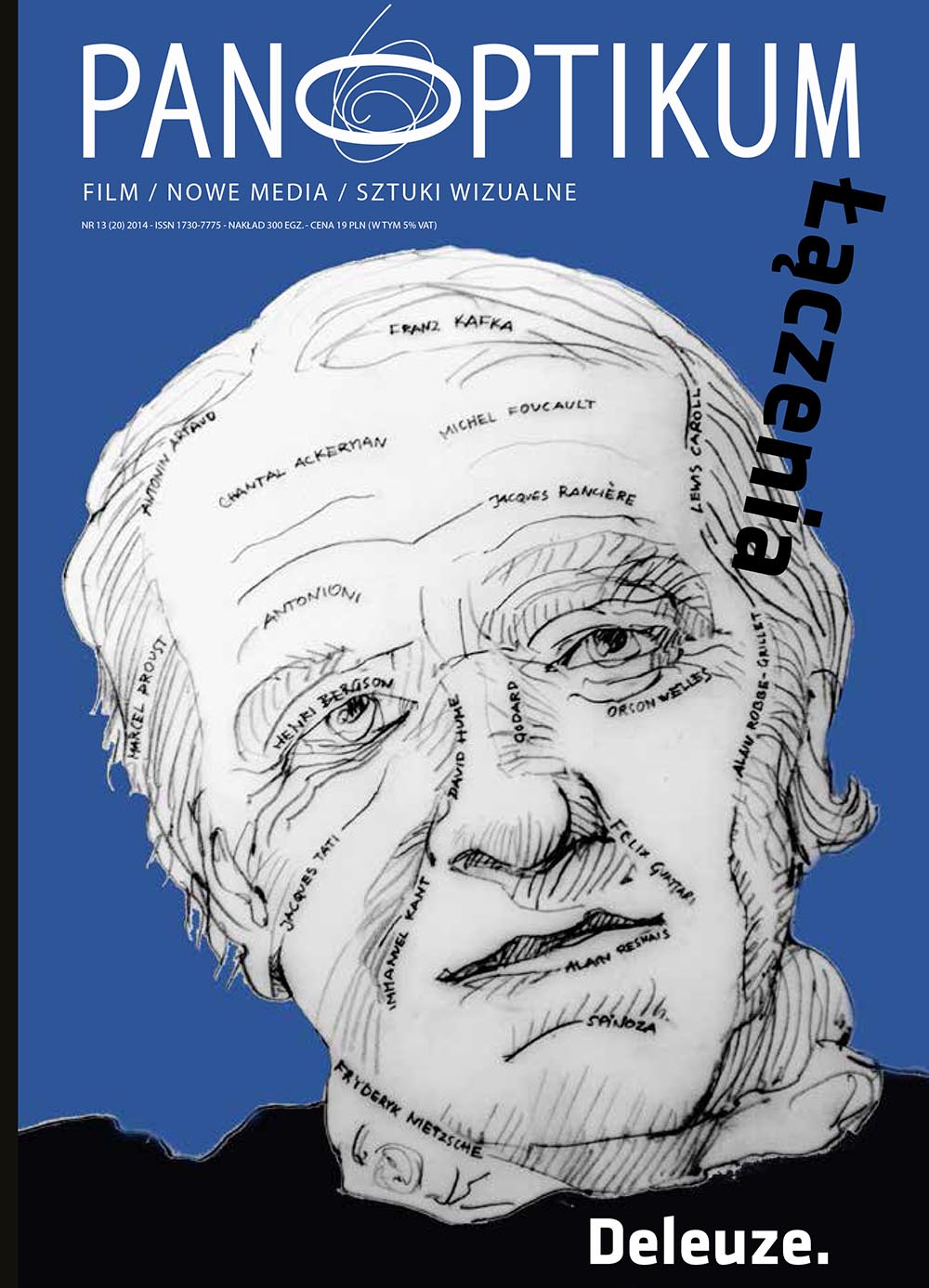Krystaliczne kino Gilles Deleuze’a: system otwarty
Abstrakt
Cinema as a theoretical and philosophical open system of thinking about classical, modern and postmodern movies. Deleuze proposed two different classifications and theoretical implications of cinematographic images. First of all he considered cinema as two different historical options: the movement-image and the time-image, based on Henri Bergson notion of matter and memory. The next point of view was a new theory about two regimes of the image, which can be discussed point by point; an organic regime and crystalline regime. The first point concerns description. A description which assumes the independence of its object is defined as “organic”. In contrast, what we call a “cristalline” description stands for its object, replaces it, both creates and erases it. A consequence of the first it studies the relation between the real and the imaginary. Organic images are recognizable by their continuity: relations, actual linkages, legal, causal and logical connections. The crystalline regime is completely different; the actual is cut off from its motor linkages. The second point no longer concerns description, but narration. Organic narration consists of the development of sensory-motor schema as a result of which the characters react to situations. This is a truthful narration in the sense that it claims to be true, even in fiction. Crystalline narration is quite different, since it implies a collapse of sensory-motor schema. The third point is the story, distinct from description and narration. Organic story is based on looking for the true, but crystalline story (the direct time-image) works with pure optical and sound images. New Wave deliberately broke with the form of the true to replace it by the ‘powers of the false’. In Gilles Deleuze’s theory the crystal discloses various temporal states: time as the eternal crisis of the consciousness and, on a deeper level, time as primitive matter, huge and terrific, as general becoming. According to the French philosopher what constitutes the crystal-image is the most fundamental operation of time; it has to split the present in two heterogeneous directions, one of which is launched towards the future while the other falls into the past. The article compares Deleuze’s classification modes of narration (Cinema) with David Bordwell’s proposition (Narration in the Fiction Film).

 Uniwersyteckie Czasopisma Naukowe
Uniwersyteckie Czasopisma Naukowe





